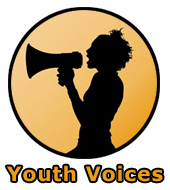Anti-Racism 101: Getting It Right
Racism isn't just open and direct bigotry, it is privilege plus power. You can choose how to use white privilege, but you cannot choose whether you have it or not. At Creating Change, we outlined the foundations of anti-racist organizing.
On the first day of my very first "Creating Change" experience, I met so many great people in the queer community! It is just a welcoming space! I especially enjoyed the prayer song that was presented from the First Nations council members to start the day.
I chose to go to the "Start with the Fundamentals Anti-Racism Day-Long Institute" intended for beginner white anti-racist activists. Even though I have been doing activist work for years, I thought it would be good to get back to the basics. I really, really liked the perspective that was taken during the Institute! The facilitators were activists for queer and disabled individuals and they were really great! They set ground rules and goals for the session at the very beginning. They made sure that everyone had as much access to the session as possible whether that meant through sight, hearing or any other form of comfort or need. Sometimes we tend to forget challenges around accessibility.

We focused on white power, privilege and supremacy. Our goals were to recognize and understand it and how to use it and challenge it. Some members of the groups had real wake-up calls because it is very hard to recognize something that you benefit from on a daily basis. White privilege and marginalization are results of white supremacy, and white supremacy isn't just the KKK.
Racism isn't just open and direct bigotry, it is privilege plus power. You can choose how to use white privilege, but you cannot choose whether you have it or not. Regardless of individual intent and agency, we systematically benefit from white privilege. It is hard to face this at times because we don't want to feel guilty. It is important to know that it isn't bad that we have access, it is bad that others have less access.
Overall we outlined five foundations of anti-racist work:
1) White people have white privilege and move through the world with it.
2) When we hold racial justice at the center of our activism, we must consider the intersections with other oppressions/activisms.
3) Being queer, or otherwise marginalized, doesn't exempt us from white privilege and white supremacy.
4) Don't do this work from a place of guilt, but from a place of intent and activism toward social justice and liberation.
5) White privilege and white supremacy is incredibly damaging to white people, too.
Although, at first, it seemed odd and almost humorous that the anti-racist sessions were setup in segregated spaces, after the sessions began, it made sense because the space seemed very safe. This session helped me reiterate, as well as learn, new ways of recognizing and challenging white privilege and white supremacy. I especially benefited from examining the intersections that we must realize occur across activist work and fighting the common assumption that you understand someone else's marginalization because of your own.
